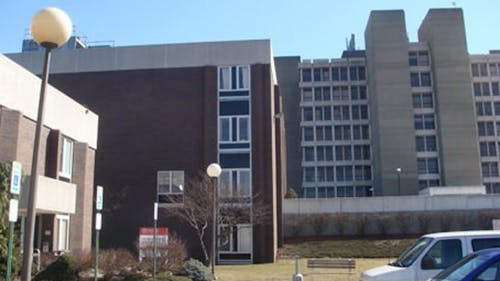Rutgers launches trauma center to train childcare providers

Twenty-six percent of children in the United States will witness or experience a traumatic event before they turn four, according to Mental Health Connection. Rutgers University is working to help children recover from these traumas.
Rutgers University Health Care's Child Division is receiving $2 million dollars in collaboration with the New Jersey Children's System of Care, the Rutgers School of Nursing, the School of Social Work and the Graduate School of Applied and Professional Psychology to create a Children’s Center for Resilience and Trauma Recovery to train existing and new childcare providers.
Rutgers was awarded the Category III Community Treatment and Services (CTS) Centers grant through the Substance Abuse and Mental Health Services Administration. The grant aims to fund improvements of the quality of trauma treatment and services for children, adolescents and their families experiencing or having witnessed traumatic affairs, according to SAMHSA.
The grant received by Rutgers is specifically targeting children who are age 10 and under who have had chronic exposure to traumatic life experiences, said Kelly Moore, a program director with RUBHC.
The training will be provided to those children’s caregivers and healthcare providers should they choose to participate in the program, she said.
“We’re targeting a young population, so we can mitigate that impact early on and really give the families tools to be successful.” Moore said.
The purpose of the training and consultation is to help children and families overcome traumatic experiences through screening, assessment and treatments, she said. The National Child Traumatic Stress Network (NCTSN) works with other independent grantees rather than purely academic institutions.
The network serves as an information hub for different versions of trauma, products such as guides for children and parents and live or archived training presentations.
Complex trauma can affect attachment and relationships, emotional responses, physical health, cognition and behavior, according to the NCTSN.
NCTSN provides caregivers with online material that will help them understand how to navigate and provide children with help for their trauma.
The treatment model selected by the RUBHC in conjunction with the organizations they are partnering with is called the attachment, regulation and competency (ARC) framework, according to The Trauma Center at Justice Resource Institute (JRI) who developed the system.
This treatment model allows for support systems to be given to children and caregivers. The program will be working directly with the Trauma Center at JRI, who developed the ARC model, according to the center.
The program's major incentive is to give free training to mental health providers on evidence-based and to offer care services to children and families dealing with complex trauma, Moore said.
The caregivers can be biological parents or resource parents, formally known as foster parents, who would learn to understand children facing complex trauma, she said.
Children can also be directed to a treatment facility that can help them manage stress, build attachment, resolve conflict and regulate emotional experiences, she said.
“Our goal for the first year is to train about 300 providers in the state of NJ," Moore said.
This would include advanced-level students who are training at the three schools at Rutgers affiliated with the program as well as state providers, she said.
The major goal is to have 130 children receiving these services, with the number growing with each year, Moore said.
In addition to the Center, the program will supply information on a website with educational resources, she said.
The objective is that those providers continuing their training in ARC will eventually be able to train other providers to use this treatment model, she said.
Another incentive is to expand the provider network that treats young children by utilizing a model that works well, Moore said.
To ensure that the grant is utilized effectively, the program and its partners will be looking at child outcome and family outcome, she said.
“Our thought is this needs to be sustainable,” Moore said.
Hernan Guarderas is a School of Arts and Sciences senior, majoring in journalism and media studies. He is a contributing writer for The Daily Targum. See more on Twitter @hguarderas93.



